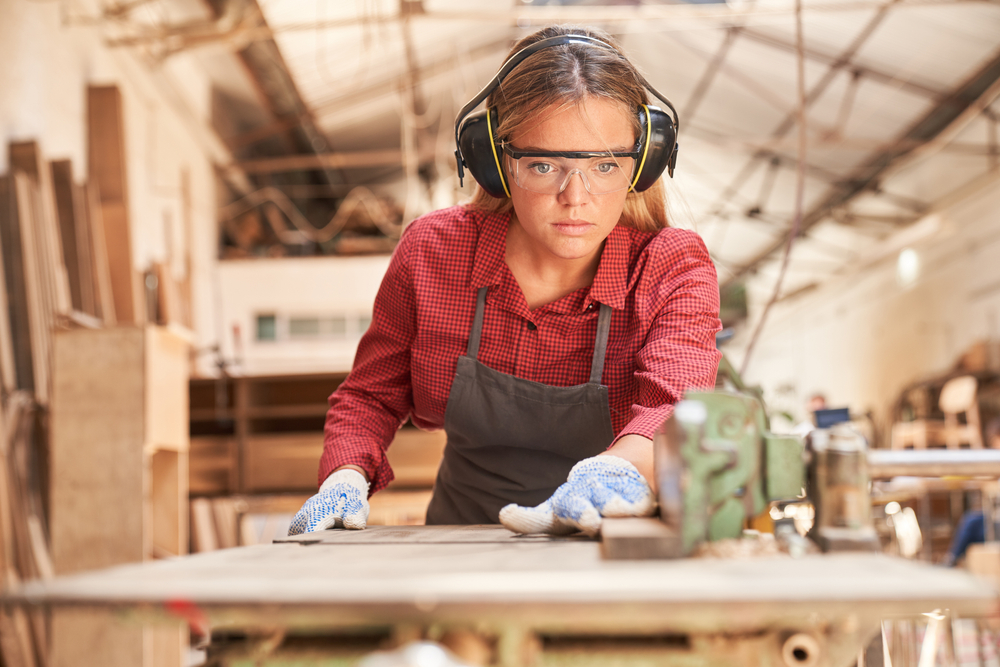Hearing protection plays an important role in protecting your ears against damaging noise levels, whether at work, concerts, or even during DIY projects at home. However, you could be left exposed to possible risks if any one of several potential factors interferes with your hearing protection’s effectiveness. Understanding these problems can help you address them proactively and maximize the advantages of your protective gear.
Why hearing protection fails: common circumstances
Even when you follow best practices, unexpected difficulties can occur. You wear your earmuffs faithfully at work, use earplugs at concerts, and avoid noisy situations whenever possible. However, the effectiveness of your hearing protection can be reduced by specific variables. Luckily, by recognizing these common pitfalls, you can make informed adjustments to ensure your hearing is always well-protected.
1. Choosing the wrong hearing protection for the situation
The effectiveness of hearing protection can be reduced by choosing the wrong type for the given situation.
Generally, hearing protection falls into two main categories:
- Earmuffs: Bigger, headphone-like device that goes over the entire ear.
- Earplugs: Small, flexible inserts that seat snugly inside the ear canal.
Each kind has its ideal use case:
- Earmuffs are better for situations with periodic noise, like a construction site where machinery starts and stops constantly.
- Earplugs are appropriate for environments with continual noise levels, including factory floors or airplane cabins.
If you’re in a quiet environment and need to momentarily remove your hearing protection, earmuffs are easier to manage. However, earplugs, particularly disposable ones, can be easily lost, leaving you exposed when noise levels rise again. The first step towards successfully protecting your hearing is to choose the right type of hearing protection.
2. Individual anatomy effects fit and effectiveness
Some devices will fit better than others depending on the size and shape of the individual’s ears. Standard earplugs and earmuffs are often designed for average dimensions, but your ear anatomy might require a more personalized solution.
- Smaller ear canals: The noise-blocking capability of standard-sized earplugs might not be effective if narrower ear canals prevent the formation of a proper seal.
- Larger ear structures: Larger ears can make earmuffs uncomfortable, causing gaps in the seal that allow noise to enter.
If your hearing protection isn’t fitting correctly, you could become discouraged and decide to discontinue using them altogether which can imperil your hearing. Consider buying custom-fitted earplugs or professionally fitted earmuffs if you spend a lot of time in loud settings. These personalized solutions provide optimal comfort and effectiveness, ensuring you remain protected in any situation.
3. Failing to maintain or replace ear protection
In order to remain effective, hearing protection devices need to be properly maintained just like any other devices do. Their ability to supply adequate protection can be compromised by things like incorrect cleaning, wear and tear, and failure to replace them when necessary.
Here’s how to maintain your hearing protection:
- Replace Cushions: Over time, earmuff cushions can lose their flexibility. Replace them as needed to maintain a tight seal.
- Inspect for Damage: Inspect the elastic band on earmuffs regularly. A slack or stretched band can decrease their snug fit, diminishing their noise-blocking ability.
- Clean Properly: Earplugs and earmuffs are exposed to earwax and other debris, which can build up over time. Clean them regularly using manufacturer-recommended techniques to ensure cleanliness without damaging the material.
Ignoring these simple maintenance duties can leave your hearing protection less effective or even useless. Regular upkeep is crucial to extend their lifespan and ensure consistent performance.
What is the role of a hearing specialist?
If you’re uncertain whether your hearing protection is doing its job, schedule an assessment appointment with us. We can examine your present devices, suggest alternatives, and even provide custom solutions tailored to your particular needs.
Keeping your hearing safe is a commitment that lasts a lifetime and it’s essential that you do it with the best tools. You can protect and preserve your hearing for many years by managing these common challenges.
